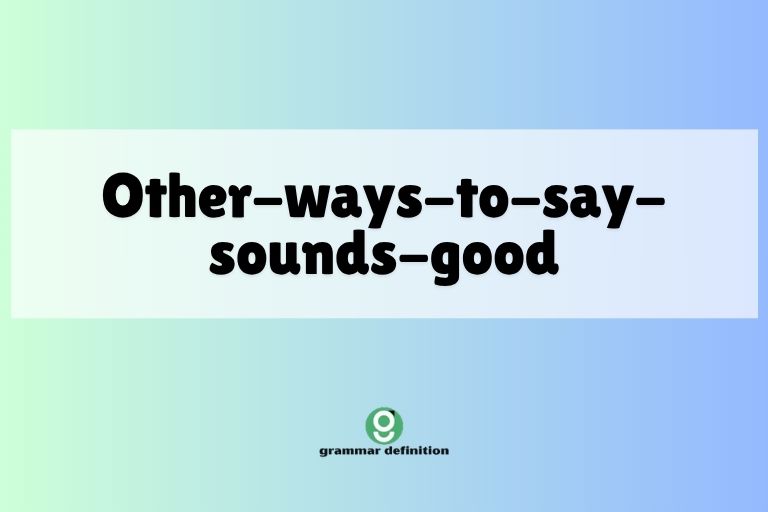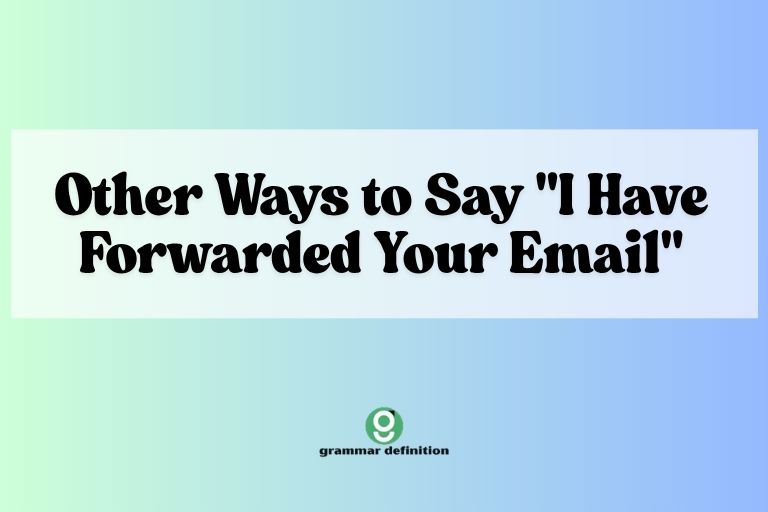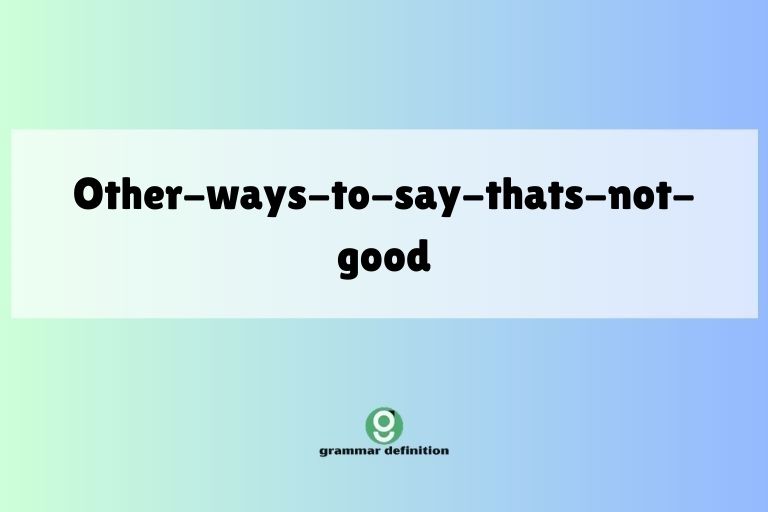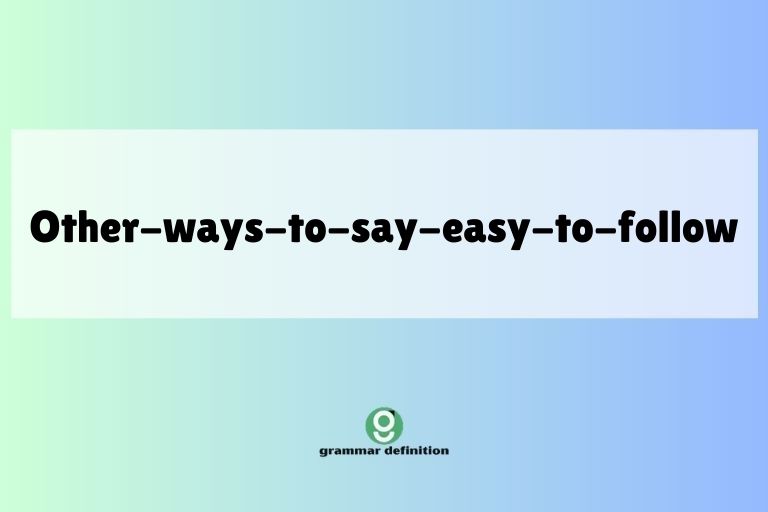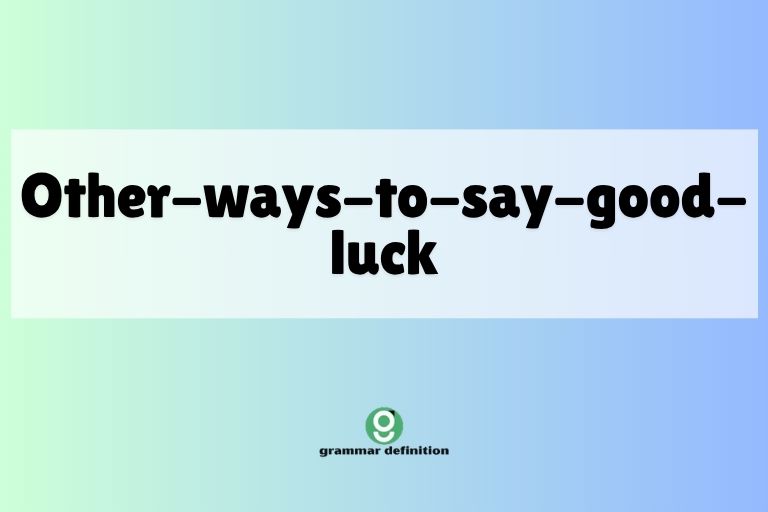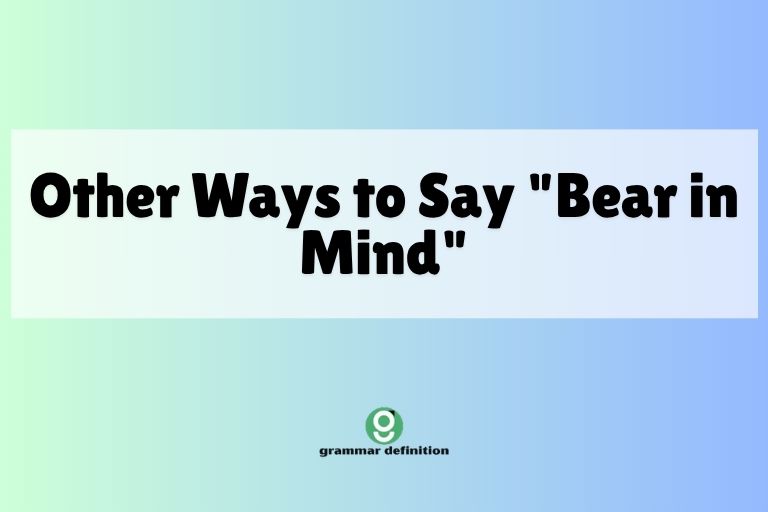Beyond “Thank You”: Creative Ways to Acknowledge Confirmation
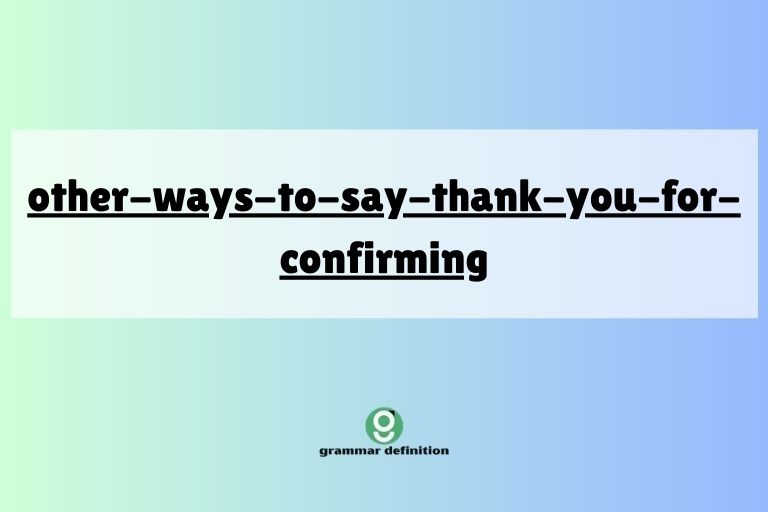
Confirmations are crucial in both personal and professional settings. They ensure that messages are received, appointments are scheduled, and plans are solidified.
While a simple “thank you” is always appreciated, diversifying your expressions of gratitude can make your responses more engaging and impactful. This article explores a variety of alternative phrases and expressions to acknowledge confirmations, enhancing your communication skills and making your interactions more meaningful.
It is designed for English language learners, professionals, and anyone looking to refine their communication skills.
By understanding and implementing these alternative expressions, you can effectively convey your appreciation while adding nuance and professionalism to your communication. This guide provides definitions, examples, usage rules, common mistakes, and practice exercises to help you master the art of acknowledging confirmations in various contexts.
Table of Contents
- Introduction
- Definition: Acknowledging Confirmation
- Structural Breakdown of Gratitude Phrases
- Types and Categories of Expressions
- Examples of Alternative Phrases
- Usage Rules and Guidelines
- Common Mistakes to Avoid
- Practice Exercises
- Advanced Topics
- Frequently Asked Questions
- Conclusion
Definition: Acknowledging Confirmation
Acknowledging confirmation refers to the act of expressing gratitude or recognition upon receiving confirmation of a message, appointment, arrangement, or any other form of agreement. It serves to reinforce the communication loop, ensuring both parties are on the same page and fostering positive relationships.
The primary function is to show appreciation for the effort taken by the other party to confirm or verify information.
In essence, acknowledging confirmation is a polite and professional way to validate the confirmation received, indicating that you have noted the information and appreciate the sender’s diligence. The specific phrases used can vary widely depending on the context, ranging from formal business correspondence to casual interactions with friends and family.
Structural Breakdown of Gratitude Phrases
Gratitude phrases typically consist of several key components that contribute to their overall effectiveness. Understanding these components can help you construct more nuanced and appropriate expressions of thanks.
1. Expression of Gratitude: This is the core element, conveying your thanks. Common examples include “Thank you,” “I appreciate,” or “Grateful for.”
2. Reason for Gratitude: Specifying what you are thankful for adds clarity and sincerity. Examples include “for confirming,” “for your confirmation,” or “for taking the time.”
3. Contextual Information: Adding details about the specific confirmation helps to personalize the message. For example, “for confirming the meeting time” or “for confirming your attendance.”
4. Closing Remark (Optional): A final polite phrase can reinforce the positive tone. Examples include “Best regards,” “Sincerely,” or “Looking forward to it.”
By combining these elements thoughtfully, you can create a wide range of expressions that effectively convey your appreciation in various situations. For example, “Thank you for confirming the details; this is very helpful!” demonstrates all four components.
Types and Categories of Expressions
Expressions of gratitude can be categorized based on their formality, context, and specific intent. Understanding these categories allows you to select the most appropriate phrase for any given situation.
Formal Expressions
Formal expressions are suitable for professional environments, official correspondence, and interactions with individuals you do not know well. They emphasize respect and maintain a level of distance.
Examples include:
- “Thank you for your confirmation.”
- “We appreciate your timely confirmation.”
- “I am grateful for your prompt confirmation.”
- “Thank you for verifying the information.”
- “We acknowledge receipt of your confirmation.”
Informal Expressions
Informal expressions are appropriate for casual conversations with friends, family, and close colleagues. They are more relaxed and personal.
Examples include:
- “Thanks for confirming!”
- “Great, thanks for letting me know.”
- “Awesome, appreciate the confirmation.”
- “Perfect, thanks for confirming that.”
- “Cool, thanks for the heads-up.”
Business-Oriented Expressions
Business-oriented expressions are tailored for professional communications, focusing on efficiency and clarity. They are often used in emails, memos, and project updates.
Examples include:
- “Thank you for confirming the project timeline.”
- “We appreciate your confirmation regarding the budget allocation.”
- “Thank you for the confirmation; we can proceed accordingly.”
- “Your confirmation is greatly appreciated and allows us to move forward.”
- “Thank you for confirming the receipt of the documents.”
Expressions of Appreciation
These phrases go beyond a simple “thank you” to express genuine gratitude for the effort or consideration shown by the other party. They highlight the value of the confirmation.
Examples include:
- “I really appreciate you confirming this.”
- “Your confirmation is incredibly helpful.”
- “I am so grateful for your confirmation.”
- “I deeply appreciate you taking the time to confirm.”
- “Your confirmation means a lot to me.”
Expressions of Acknowledgment
These phrases focus on acknowledging the receipt of the confirmation and its impact on future actions. They emphasize understanding and forward movement.
Examples include:
- “Confirmation received, thank you.”
- “Acknowledged, and thank you for confirming.”
- “We have received your confirmation and will proceed accordingly.”
- “Noted, thank you for the confirmation.”
- “Your confirmation has been received, thank you.”
Examples of Alternative Phrases
This section provides a comprehensive collection of alternative phrases to express gratitude for confirmations, categorized for clarity and ease of use.
Table 1: General Expressions of Gratitude
This table presents a variety of general expressions suitable for a wide range of contexts. These phrases can be adapted to fit specific situations by adding relevant details.
| Phrase | Context |
|---|---|
| “Thank you for confirming.” | General use, suitable for most situations. |
| “I appreciate your confirmation.” | Slightly more formal than “thank you.” |
| “Grateful for your confirmation.” | Expresses a deeper sense of gratitude. |
| “Thanks for the confirmation.” | Informal, suitable for casual settings. |
| “Appreciate you confirming.” | Informal and friendly. |
| “Much appreciated.” | Concise and versatile. |
| “Many thanks for confirming.” | A more emphatic version of “thank you.” |
| “Thank you kindly for confirming.” | Polite and slightly old-fashioned. |
| “I am thankful for your confirmation.” | Formal and sincere. |
| “I’m grateful for your confirmation.” | Similar to “I am thankful,” but slightly less formal. |
| “Thanks a lot for confirming.” | Informal and enthusiastic. |
| “Thank you so much for confirming.” | More emphatic than a simple “thank you.” |
| “Really appreciate you confirming.” | Informal and genuine. |
| “I truly appreciate your confirmation.” | Stronger expression of gratitude. |
| “Very grateful for your confirmation.” | Emphasizes the level of gratitude. |
| “Thank you, your confirmation is noted.” | Professional and efficient. |
| “I appreciate you taking the time to confirm.” | Acknowledges the effort involved. |
| “Many thanks for your prompt confirmation.” | Highlights the speed of the confirmation. |
| “Thank you for the quick confirmation.” | Similar to “prompt confirmation.” |
| “I appreciate you getting back to me so quickly.” | Highlights the speed of the confirmation. |
| “Thanks for the update.” | Simple and direct. |
| “Thank you for letting me know.” | Acknowledges the information provided. |
| “Thanks for keeping me in the loop.” | Shows appreciation for being informed. |
| “I’m glad you confirmed.” | Expresses relief and satisfaction. |
Table 2: Business-Specific Expressions
This table provides phrases tailored for professional settings, emphasizing efficiency, clarity, and respect. These expressions are suitable for emails, memos, and formal correspondence.
| Phrase | Context |
|---|---|
| “Thank you for confirming the appointment.” | Specifically for confirming scheduled meetings. |
| “We appreciate your confirmation of the order.” | Used in sales and procurement contexts. |
| “Thank you for confirming the details of the contract.” | Relevant for legal and contractual matters. |
| “I appreciate your confirmation regarding the project timeline.” | Applicable in project management scenarios. |
| “We are grateful for your confirmation of the updated policy.” | Used for disseminating new policies and procedures. |
| “Thank you for confirming the receipt of the documents.” | Ensures proper delivery and acknowledgment of important documents. |
| “We acknowledge your confirmation and will proceed accordingly.” | Formal and professional, indicating action will be taken. |
| “Your confirmation is greatly appreciated; we can now move forward.” | Highlights the importance of the confirmation for progress. |
| “Thank you for confirming your availability for the meeting.” | Specifically for confirming attendance at a meeting. |
| “We appreciate your prompt confirmation regarding the invoice.” | Relevant for financial and accounting matters. |
| “Thank you for verifying the information; it is greatly appreciated.” | Emphasizes the value of the verification. |
| “We appreciate your confirmation as it helps us to finalize the arrangements.” | Highlights the role of the confirmation in finalizing plans. |
| “Thank you for your confirmation; this allows us to proceed with the next steps.” | Indicates the confirmation enables further action. |
| “We appreciate you confirming these important details.” | Emphasizes the significance of the confirmed information. |
| “Thank you for confirming your agreement to the terms.” | Used when confirming acceptance of terms and conditions. |
| “We appreciate your confirmation of the budget allocation.” | Relevant for financial planning and management. |
| “Thank you for confirming the shipping address.” | Important for logistics and delivery processes. |
| “We appreciate your confirmation of the changes to the schedule.” | Used when confirming updates to planned activities. |
| “Thank you for confirming the attendance list.” | Relevant for event planning and management. |
| “We appreciate your confirmation of the security protocols.” | Important in security-related communications. |
Table 3: Informal and Personal Expressions
This table presents informal phrases suitable for casual conversations with friends, family, and close colleagues. These expressions are more relaxed and personal.
| Phrase | Context |
|---|---|
| “Thanks for confirming, mate!” | Casual and friendly, common in British English. |
| “Great, thanks for letting me know.” | Informal and conversational. |
| “Awesome, appreciate the confirmation.” | Enthusiastic and friendly. |
| “Perfect, thanks for confirming that.” | Expresses satisfaction and gratitude. |
| “Cool, thanks for the heads-up.” | Informal and appreciative. |
| “Cheers for confirming!” | Informal, common in British English. |
| “Sweet, thanks for confirming.” | Informal and appreciative. |
| “Right on, appreciate the confirmation.” | Informal and enthusiastic. |
| “Sounds good, thanks for confirming.” | Expresses agreement and gratitude. |
| “Got it, thanks for the confirmation.” | Indicates understanding and appreciation. |
| “Thanks a bunch for confirming!” | Informal and enthusiastic. |
| “Thanks a million for confirming!” | Hyperbolic and friendly. |
| “Really appreciate you getting back to me.” | Informal and appreciative of the response. |
| “Thanks for keeping me in the loop!” | Appreciates being informed. |
| “You’re a lifesaver, thanks for confirming!” | Humorous and grateful. |
| “That’s great, thanks for the confirmation!” | Expresses positive sentiment and gratitude. |
| “Fantastic, appreciate you confirming.” | Enthusiastic and appreciative. |
| “Wonderful, thanks for the confirmation!” | Positive and grateful. |
| “Super, thanks for confirming!” | Informal and appreciative. |
| “Excellent, appreciate you letting me know.” | Expresses satisfaction and gratitude. |
| “Thanks! That’s a load off my mind.” | Expresses relief and gratitude. |
| “Thanks, I can relax now!” | Humorous and grateful. |
| “Appreciate you taking the time to confirm.” | Acknowledges the effort made. |
| “Thanks for being so responsive!” | Appreciates the quick reply. |
Table 4: Expressions with Specific Actions
This table provides phrases that specify the action taken after receiving the confirmation. These expressions emphasize the impact of the confirmation on future steps.
| Phrase | Context |
|---|---|
| “Thank you for confirming; I will update the records.” | Indicates that records will be updated based on the confirmation. |
| “We appreciate your confirmation; we will proceed with the shipment.” | Indicates that shipment will proceed based on the confirmation. |
| “Thank you for confirming; I will add it to the agenda.” | Indicates that the confirmed item will be added to the agenda. |
| “We appreciate your confirmation; we can now finalize the plans.” | Indicates that the plans can be finalized based on the confirmation. |
| “Thank you for confirming; I will inform the team.” | Indicates that the team will be informed based on the confirmation. |
| “We appreciate your confirmation and will notify the relevant department.” | Professional, indicating departmental notification. |
| “Thank you for confirming; I will mark this as completed.” | Indicates completion of a task based on the confirmation. |
| “We appreciate your confirmation; we will adjust the budget accordingly.” | Indicates budget adjustments based on the confirmation. |
| “Thank you for confirming; I will reserve the room.” | Indicates room reservation based on the confirmation. |
| “We appreciate your confirmation; we will send out the invitations.” | Indicates sending out invitations based on the confirmation. |
| “Thank you for confirming; I’ll make sure to prepare accordingly.” | Indicates preparation based on the confirmation. |
| “We appreciate your confirmation; we will update the system.” | Indicates system updates based on the confirmation. |
| “Thank you for confirming; I’ll schedule the follow-up.” | Indicates scheduling a follow-up based on the confirmation. |
| “We appreciate your confirmation; we will process the request.” | Indicates request processing based on the confirmation. |
| “Thank you for confirming; I’ll send a reminder.” | Indicates sending a reminder based on the confirmation. |
| “We appreciate your confirmation; we will update the website.” | Indicates website updates based on the confirmation. |
| “Thank you for confirming; I’ll arrange transportation.” | Indicates arranging transportation based on the confirmation. |
| “We appreciate your confirmation; we will send the contract.” | Indicates sending the contract based on the confirmation. |
| “Thank you for confirming; I’ll book the tickets.” | Indicates booking tickets based on the confirmation. |
| “We appreciate your confirmation; we will allocate resources.” | Indicates resource allocation based on the confirmation. |
Usage Rules and Guidelines
Using these alternative phrases effectively requires an understanding of the nuances of English grammar and social context. Here are some key rules and guidelines to consider.
1. Formality: Choose phrases that align with the formality of the situation. Use formal expressions in professional settings and informal expressions in casual conversations.
2. Sincerity: Ensure your expression of gratitude is genuine. Avoid using overly formal or insincere phrases, as they can come across as disingenuous.
3. Context: Tailor your phrase to the specific context of the confirmation. Adding details about what you are thankful for makes your message more personal and impactful.
4. Audience: Consider your relationship with the recipient. Use more familiar and casual language with close colleagues and friends, and more formal language with superiors and clients.
5. Grammar: Pay attention to grammar and punctuation. Ensure your phrases are grammatically correct and properly punctuated to maintain clarity and professionalism.
6. Tone: Maintain a positive and respectful tone. Avoid using sarcastic or dismissive language, even in informal settings.
7. Clarity: Make sure your message is clear and easy to understand. Avoid using overly complex or ambiguous language.
Common Mistakes to Avoid
Even with a good understanding of grammar, it’s easy to make mistakes when expressing gratitude. Here are some common errors to avoid.
1. Using “Thanks you” instead of “Thank you”: This is a common grammatical error. Always use “Thank you” as the correct form.
Correct: Thank you for confirming.
Incorrect: Thanks you for confirming.
2. Overusing the same phrase: Repeating the same phrase can make your communication sound monotonous. Vary your expressions to keep your messages engaging.
Correct: Thank you for confirming. / I appreciate your confirmation.
Incorrect: Thank you for confirming. / Thank you for confirming.
3. Using overly informal language in formal settings: Using casual phrases like “Cheers” or “Cool” in a business email can be unprofessional.
Correct: Thank you for your confirmation.
Incorrect: Cheers for confirming!
4. Forgetting to specify what you are thankful for: A vague “Thank you” can be less impactful than a specific “Thank you for confirming the appointment time.”
Correct: Thank you for confirming the details.
Incorrect: Thank you.
5. Misspelling words: Always double-check your spelling to avoid errors that can undermine your credibility.
Correct: I appreciate your confirmation.
Incorrect: I apreciate your confirmation.
6. Using incorrect punctuation: Proper punctuation is essential for clarity and professionalism.
Correct: Thank you for confirming, I appreciate it.
Incorrect: Thank you for confirming I appreciate it
Practice Exercises
Test your understanding of alternative ways to say “thank you for confirming” with these exercises.
Exercise 1: Choose the Best Phrase
Select the most appropriate phrase for each scenario.
| Scenario | Options | Answer |
|---|---|---|
| Confirming a doctor’s appointment via email. | a) “Cool, thanks!” b) “Thank you for confirming the appointment.” c) “Appreciate it!” | b) “Thank you for confirming the appointment.” |
| Confirming plans with a close friend. | a) “Thank you for your confirmation.” b) “Thanks a bunch!” c) “We acknowledge receipt of your confirmation.” | b) “Thanks a bunch!” |
| Confirming a project deadline with your manager. | a) “Thanks for the heads-up.” b) “Thank you for confirming the project timeline.” c) “Sweet, got it!” | b) “Thank you for confirming the project timeline.” |
| Confirming receipt of documents from a colleague. | a) “Got it, thanks!” b) “Thank you for confirming the receipt of the documents.” c) “Cheers!” | b) “Thank you for confirming the receipt of the documents.” |
| Confirming attendance at a casual team lunch. | a) “Awesome, appreciate the confirmation.” b) “Thank you for confirming your attendance.” c) “We are grateful for your prompt confirmation.” | a) “Awesome, appreciate the confirmation.” |
| Confirming a flight booking with a travel agent. | a) “Thanks, mate!” b) “Thank you for confirming the flight booking.” c) “Cool, appreciate it.” | b) “Thank you for confirming the flight booking.” |
| Confirming details for a wedding with the event planner. | a) “Sweet, thanks!” b) “Thank you for confirming the wedding details.” c) “Got it, appreciate it.” | b) “Thank you for confirming the wedding details.” |
| Confirming a reservation at a restaurant with a friend. | a) “Thanks a bunch!” b) “Thank you for confirming the reservation.” c) “We appreciate your confirmation.” | a) “Thanks a bunch!” |
| Confirming a speaking slot at a conference with the organizer. | a) “Cheers, appreciate it!” b) “Thank you for confirming my speaking slot.” c) “Awesome, thanks.” | b) “Thank you for confirming my speaking slot.” |
| Confirming the delivery of a package with the courier service. | a) “Thank you for confirming the package delivery.” b) “Cool, thanks.” c) “Sweet, appreciate it.” | a) “Thank you for confirming the package delivery.” |
Exercise 2: Rewrite the Sentences
Rewrite the following sentences using alternative phrases to express gratitude for confirmation.
| Original Sentence | Rewritten Sentence |
|---|---|
| Thank you for confirming. | I appreciate your confirmation. |
| Thanks for confirming the meeting time. | Appreciate you confirming the meeting time. |
| Thank you for your confirmation; it is noted. | Your confirmation is noted, thank you. |
| Thanks for letting me know you’ll be there. | Great, thanks for confirming your attendance. |
| Thank you for confirming the order details. | We appreciate your confirmation of the order details. |
| Thank you for confirming the payment. | I appreciate your confirmation regarding the payment. |
| Thanks for confirming you received the email. | Appreciate you confirming the email receipt. |
| Thank you for confirming the changes to the plan. | We appreciate your confirmation of the plan changes. |
| Thanks for confirming that everything is correct. | Appreciate you verifying that everything is correct. |
| Thank you for confirming the delivery address. | I appreciate your confirmation of the delivery address. |
Exercise 3: Fill in the Blanks
Complete the following sentences with appropriate phrases to express gratitude for confirmation.
| Sentence | Answer |
|---|---|
| __________ for confirming the booking. | Thank you |
| I __________ your confirmation of the details. | appreciate |
| __________ for confirming, it’s much appreciated. | Thanks |
| We are __________ for your prompt confirmation. | grateful |
| __________ you for confirming your availability. | Thank |
| __________ for confirming the arrangements. | Appreciate |
| __________ you for confirming the shipment details. | Thank |
| I __________ your confirmation regarding the changes. | appreciate |
| __________ you for confirming the accuracy of the report. | Thank |
| We are __________ for your confirmation of the updated policy. | grateful |
Advanced Topics
For advanced learners, consider exploring these more complex aspects of expressing gratitude for confirmations.
1. Cultural Nuances: Different cultures have different norms for expressing gratitude. Researching cultural expectations can help you avoid misunderstandings and build stronger relationships.
2. Non-Verbal Communication: Complement your verbal expressions of gratitude with appropriate non-verbal cues, such as a smile, eye contact, and a sincere tone of voice.
3. Personalization: Tailor your expressions of gratitude to the individual and the situation. A personalized message will be more meaningful and impactful.
4. Combining Phrases: Experiment with combining different phrases to create unique and nuanced expressions of gratitude. For example, “Thank you so much for confirming; I really appreciate your help.”
Frequently Asked Questions
Here are some common questions about expressing gratitude for confirmations.
1. Is it always necessary to say “thank you” for a confirmation?
Yes, it is generally considered polite and professional to acknowledge a confirmation with an expression of gratitude. It reinforces the communication loop and shows appreciation for the other party’s effort.
2. What is the difference between “thank you” and “I appreciate”?
“Thank you” is a general expression of gratitude, while “I appreciate” is slightly more formal and indicates a deeper level of gratitude. Both are appropriate in most situations, but “I appreciate” may be more suitable for formal or professional contexts.
3. How can I make my “thank you” more sincere?
Specify what you are thankful for, use a genuine tone of voice, and personalize your message to the individual and situation. Avoid using generic or insincere phrases.
4. Is it okay to use informal language in a business email?
It depends on your relationship with the recipient and the company culture. In general, it’s best to err on the side of formality, especially in initial communications.
However, if you have a close working relationship, informal language may be acceptable.
5. What should I do if I forget to say “thank you” for a confirmation?
If you realize you forgot to express gratitude, send a follow-up message as soon as possible. A simple “I apologize for not saying this earlier, but thank you for confirming” can rectify the situation.
6. How important is it to vary my expressions of gratitude?
Varying your expressions of gratitude can make your communication more engaging and impactful. It shows that you are thoughtful and sincere in your appreciation.
7. Can non-native English speakers use slang when expressing gratitude?
It’s generally best to avoid using slang unless you are very familiar with the nuances of the language and the cultural context. Using slang incorrectly can lead to misunderstandings or offense.
8. What’s the best way to acknowledge a confirmation and indicate I’ve taken action on it?
Use phrases like “Thank you for confirming; I will update the records,” or “We appreciate your confirmation; we will proceed with the shipment.” This clarifies that you’ve not only received the confirmation but also acted upon it.
Conclusion
Mastering alternative ways to say “thank you for confirming” is an essential skill for effective communication in both personal and professional contexts. By understanding the different types of expressions, usage rules, and common mistakes to avoid, you can enhance your communication skills and build stronger relationships.
Remember to choose phrases that align with the formality of the situation, express genuine gratitude, and tailor your message to the individual and context.
Practice these techniques regularly to improve your fluency and confidence. By diversifying your expressions of gratitude, you can make your communication more engaging, impactful, and memorable.
Keep exploring and refining your skills to become a more effective and appreciated communicator.

